Review of DivorceCare® Divorce Recovery Groups:
Pros and Cons
DivorceCare® (DC) is a conservative Christian divorce recovery program used in about 10% of Protestant churches. It runs 13 weeks typically. To find a group near you, click here: https://www.divorcecare.org/findagroup
.
I’ve led the 2nd, 3rd, and (new) 4th edition of DivorceCare over the past 15 years. In Spring 2021 I led a 50-person DivorceCare 4th edition group on Zoom. So I am familiar with the pros and cons of the curriculum.
.
PROS of DivorceCare®
Pro #1. Because it’s so conservative, DivorceCare® is one of the few divorce-related Christian curricula found in conservative churches. Many groups are healthy and provide great fellowship and emotional support for divorcees. (The curriculum is not available through other retailers; it must be ordered by the church directly from the publisher, Church Initiative.)
.
Pro #2. It is good for those Christians who are divorced due to ADULTERY or physical ABANDONMENT by an unbeliever. Infidelity is the #1 reason for divorce in the U.S. So this aspect is very helpful and supportive. (Note: other top reasons for divorce in the U.S. are: physical, verbal, and emotional abuse AND drug/alcohol abuse, but DivorceCare isn’t quite as helpful for these situations.)
.
Pro #3: If a particular DC leader is emotionally healthy and believes that physical abuse and emotional abuse are valid grounds for divorce, the group can be fine for abuse survivors, and will offer valuable friendship and encouragement. If you are considering joining a DivorceCare® group, contact the leader before signing up. Ask: “Do you personally believe that divorce might be the best and most godly option for people facing serious physical or emotional abuse?”
(By the way, If you don’t mind meeting via Zoom, WildStream Retreat Center does a good job with their online DivorceCare group. It’s a safe place for abuse survivors. See the bottom of their page: https://wildstreamretreat.org/)
.
Pro #4: DC offers an online version, thanks to COVID-19, and now people around the world can participate by watching the streaming videos.
.
PRO #5: This is a good choice for people who want a group at their local church to build friendships in their fellowship.
.
PRO #6: Their DivorceCare for Kids (DC4K) is an excellent curriculum for children. The kids curriculum and program changed my family’s ability to talk about the divorce, and was a major turning point for me and my little children (about 9 and 7 at the time). However, I don’t know if anything has changed since 1999 when we took it.
.
Pro #7: If a marital abuse survivor has no emotional support after divorce and no one to talk with, and they aren’t connected to any of the private or secret online Christian abuse recovery groups, then this is a place to come and share.
The good private faith-based groups online are Natalie Hoffman’s women’s group “Flying Free“; Sarah McDugal’s women’s group, “Wilderness To Wild”; Betrayal Trauma Recovery’s groups btr.org; Helena Knowlton’s women’s group “Confusion to Clarity ARISE”; or Gretchen Baskerville’s coed private Facebook group “Life-Saving Divorce,” for example.
.
Pro #8: The new 4th edition is much better on the topic of physical abuse. The videos include an interview with a uniformed law enforcement officer talking about domestic violence and saying the victim should contact law enforcement and get to safety. There are so many other helpful comments in the video that would apply to participants who’ve experienced marital abuse. [Thank you to the participant who took the time to transcribe this.]
The male host says: “Going down any of these paths [referring to coparenting, friendship and remarriage], of course, assumes it’s safe for you to do so. Sometimes separation and divorce happens because the marriage relationship was physically dangerous or emotionally toxic. In those cases, the wisest option is to maintain distance while you carefully determine the future the of the relationship.” Note that he doesn’t say divorce is acceptable, but does affirm that it happens.
Then the title screen that comes up reads “Ensure your emotional and physical safety” and a woman who is a family law attorney named Tiffany Lesnik tells her story, describing a former [destructive] spouse who is clearly high conflict, this is a toxic situation/emotionally abusive, and she highlights the importance of learning how to set healthy boundaries.
The next screen, “responding to an abusive spouse”, and the male host continues: “If you have been in an abusive of demeaning relationship and you feel threatened even after leaving the relationship contact your local courthouse about getting an order of protection.” It adds, contact your bank about the status of joint accounts and if you suspect your children are in danger, contact a family law attorney about your options for protecting them.
.
Pro #9: The curriculum is attractive and inviting from a graphic design standpoint, and the video production quality is very good. To their credit, when it comes to legal issues, the hosts encourage you to ask the court for your half of the assets, or whatever your state’s guidelines are.
.
Pro #10: The tips for parents in the 4th edition have been greatly improved, miles beyond the typical advice. They show real empathy toward children’s feelings and show some experience in trauma-reduction for children. (I only wish they would go one step further to counteract a common myth in our Christian narrative: that divorce is universally bad for children. In reality, 30 years of family research shows it is not true in the case of highly toxic homes. Fathers or mothers with multiple antisocial traits-the more, the worse-are bad for children’s mental health. A parent involved with marriage-endangering behavior has a negative influence that cancels the benefits of a two-parent married home. See: https://lifesavingdivorce.com/jaffee, and https://lifesavingdivorce.com/wallerstein.)
CONS of DivorceCare®
.
Con #1: Unless the leader and pastor condone divorce for abuse, it is not explicitly a very supportive curriculum for Christians who filed for divorce due to physical or emotional abuse, as they don’t accept domestic violence or family-crushing addictions as biblical grounds for divorce or remarriage. (See screenshot of their 3rd and 4th edition curriculum, below.) Session 12, which discusses DivorceCare’s two acceptable reasons for divorce can be traumatizing to abuse victims.
.
Con #2: The videos make divorce seem like a personal or spiritual failure, even on the innocent spouse’s part. This tone seeps into their videos and curriculum. This is not a good curriculum for people who had to file for divorce to save their lives and sanity or who were betrayed by a serial cheater. It is not their fault. Many people in my groups have said some videos are triggering. This attitude sets a problematic example for pastoral counselors in the church, who may be well-meaning but accidentally do further damage.
.
Con #3: The videos seem pretty naive about the likelihood that a serial cheater or chronic abuser will change. They promote false hope. (Experts say about 2% of people actually do the hard work to change.) They never mention any psychological studies by family researchers, which is strange since some of the experts on the team have Ph.D.s. This may be because some conservative churches are extremely anti-psychology.
.
Con #4: The prior edition (3rd Edition) included a salvation message every week. Although Christianity helps people overcome their depression and fear, this seems a bit overkill. Also, the version 3 videos were about an hour long, too long to allow time to discuss, share, and pray. (This has been improved in the 4th edition: It has 30-min videos and less spiritual pressure for conversion every week.)
.
Con #5: The session on “Your Former Spouse” (Session 11, 4th edition) is a bit out of touch with the high number of Christians in high-conflict divorce and custody situations. Although there was a statement made on the video that some people/relationships are not safe, they suggest a “civil relationship” with your ex is required, and offer naïve suggestions about co-parenting, not even acknowledging the possibility of a hostile ex who wants vengeance and uses the court to abuse. Of course, as Christians, we are to treat others with decency, but we cannot control the other parent. The Bible says we are to “live in peace, so long as it depends on us,” which means we can only control our behavior, not the other parent’s. Sometimes going “no contact” with the other parent is the right, godly, and biblical thing to do according to 1 Corinthians 5:11. Of course, if there are minor children involved, we are obligated by the court to communicate about certain logistics, health, and schooling issues.
.
Con #6: This curriculum promotes reconciliation to a fault, never suggesting that divorce might be the most godly and best solution in a horrible situation. The organization makes a big deal on its home page about how it saves a lot of marriages. They try to get the innocent spouse to bend over backward to figure out ways they contributed to the bad marriage. This is destructive. It’s called “mutualizing.” And while we all have our faults, most of us were not the adulterers, the abusers, the child molesters, or the addicts.
.
Con #7: DivorceCare® never goes through a list of behaviors and attitudes that your ex must change before it would be safe to get back together. They are behind the curve in their understanding of characterological issues known to have poor long-range outcomes, such as pedophilia and personality disorders. Without a good leader to minimize this attitude, this curriculum can be unsafe for abuse survivors, pressuring them to reconcile.
.
Con #8: Look at their expert list online. You’ll see that while some are outstanding (such as Leslie Vernick, Dr. Craig Keener, Joy Forest, and others), several are “nouthetic counselors.” “Nouthetic” or “biblical counselors” are usually not licensed counselors. They don’t have years of schooling, classes requiring reading peer-reviewed research studies, evidence-based textbooks, and hundreds of hours of supervision by licensed professionals. They are not required to follow ethical guidelines or confidentiality. Some don’t allow divorce for abuse, even though 1-in-4 Christians reported they had intimate partner violence in their current marriage. Some of these “counselors” pressure abuse victims to sweep long patterns of marriage-destroying behavior under the carpet and reconcile at all costs. And many promote husband-over-wife hierarchy, where, in some cases, women must submit to her husband even if he’s involved with marriage-destroying sin. Some may even have a problematic view of anger. See Con #12.
.
Con #9: Their experts don’t talk much about trauma, so important topics like identifying symptoms of PTSD are not mentioned.
.
Con #10: Most DC groups are coed. This is how the founder, Steve Grissom, wants it. Sadly, 1-in-4 Christian marriages in the U.S. have intimate partner violence. That means there could be abusive men (and women) in the group who aren’t safe. Many Christian men have been taught by churches that they are entitled to make all major decisions and call the shots in the household. Taken to the extreme, this means a few men (and women) attending these groups believe the husband has almost a free pass to do anything he wishes, regardless of the damage he does to his wife. These men feel aggrieved that their wives left them, often claiming they have no idea why their wives left, and suggesting their wives had no biblical grounds for leaving. This is a red flag that some men (and perhaps some women) in a DivorceCare® group (and frankly, any divorce recovery group) could be abusers themselves. The DivorceCare® leader guide recommends precautions to take at the end of each session, including escorting women to their cars and prohibiting dating. But abusive people don’t think the rules apply to them. Over the years, there have been many reports in the password- protected DivorceCare Leaders Forum regarding problems. I strongly recommend single-sex groups to avoid these problems.
.
Con #11: DivorceCare tends not to interview very many individuals who filed for divorce, so you don’t hear many positive stories of godly spouses who left destructive situations, and whose children are safer and have greater well-being today. In their videos, most interviews are with those who got “dumped.” Some of these interviewees are troubled people with a history of anti-social behavior themselves: fighting, substance abuse, deceit, impulsivity, recklessness, etc. To DivorceCare®’s credit perhaps, they appear to have improved since their divorce. Only a few of the interviews are with normal healthy divorced Christians who are grateful to God they left horrific situations and saved their lives and their children.
.
Con #12: Session 3 (4th edition) on anger is somewhat controversial. Let me explain: Many of the speakers in this session were good. Several people talk about anger getting out of control, such as the woman who is considering violence and revenge. I agree that if your anger is making you mean and resentful at everyone around you, something is going on. On the other hand, it is OK to withhold your time, your attention, and money from a person who is motivated to hurt you. You can treat them fairly and NOT give them all the time, money, energy, and emotional loyalty they want. I also think it’s OK to view someone in a negative light. If your spouse has lied about you, falsely accused you, molested children, cheated on you, gambled away your rent money, or treated you with complete indifference, it’s only appropriate to view them in a negative light. (This is one example where the “nouthetic counseling” influence comes into this curriculum. You’re not allowed to call a spade a spade. This mind-game, called “sin-leveling,” is dangerous.) Forgiveness is also a touchy topic. Forgiveness takes time. When betrayal and abuse take place over years, it takes time to identify the sins, explore the damage they caused, and hand them over to God. It’s not an instant “forgive and forget” moment. Another positive: several people in the video talked about being angry at God and I’m glad that they said it is OK to be angry, that King David was angry at God in the Psalms. We have evidence of that in the psalms of lament in the Bible.
.
.
Would I lead DivorceCare again? Yes, if my pastor asked me, I would. But in the end, it’s best if the facilitator integrates some changes, braces participants before Sessions 3 and 12, gives a more wise perspective, and invites the participants to voice disagreement. A Lutheran pastor wrote his dissertation on divorce recovery curriculum and compared DivorceCare® with other options. See his p. 151-152 for his recommendations about adapting the curriculum to make it more balanced.
If you wish to lead a group, I would recommend that the LEADERS first read my book, The Life-Saving Divorce. #Ad
Paperback: https://amzn.to/3cF1j25 Or Kindle: https://amzn.to/3CCBsnr. It gives you the tips I have learned from leading divorce recovery groups since 1998.
SMALL GROUP CURRICULUM FOR CHRISTIANS
1. For Christian divorce recovery groups, I recommend PEACE AFTER DIVORCE by Renee Smith Ettline, M. Ed. It is available direct from www.peaceafterdivorce.com or on Amazon. There is free leader guide at https://www.peaceafterdivorce.com/book_study_guide_request/. I like this book because, unlike the DivorceCare curriculum, it is supportive of Christians who divorce due to physical or emotional abuse or a spouse involved in addictions.
2. The best SECULAR CURRICULUM THAT CAN BE ADAPTED FOR CHRISTIANS is the classic book, Rebuilding: When Your Relationship Ends. #ad. Any facilitator with basic Bible study skills can add the appropriate Bible verses and have a time of prayer and sharing at the end of each session. (It is a secular book.) If your goal is to give divorcees hope and strength for the future, this is a good choice. It has more topics (22 weeks of material), no shaming messages for abuse victims, and would be more comfortable for inviting people who don’t have a faith background.
Another option for groups, as the perfect follow-up curriculum, is Boundaries by Drs Henry Cloud and John Townsend which has a new fill-in-the-blank workbook. (Note: The Boundaries workbook requires the Boundaries book or Kindle. The participants need to have both the newest edition of the book and workbook. #ad)
See Image of 3rd Edition – Divorce for domestic violence, physical abuse, emotional abuse is not condoned in DivorceCare curriculum
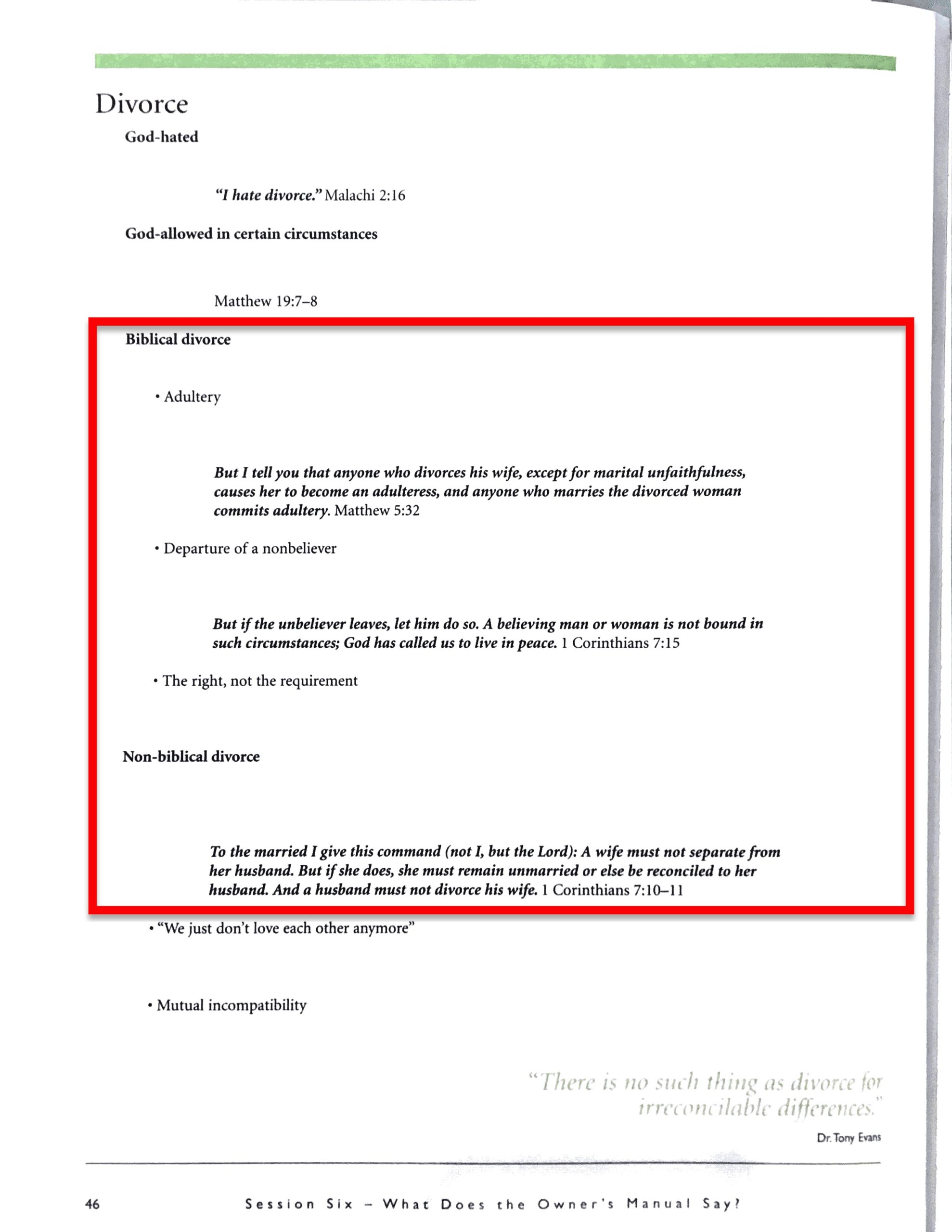
See next page for Image of 4th Edition – Divorce for domestic violence, physical abuse, emotional abuse is not condoned in DivorceCare curriculum
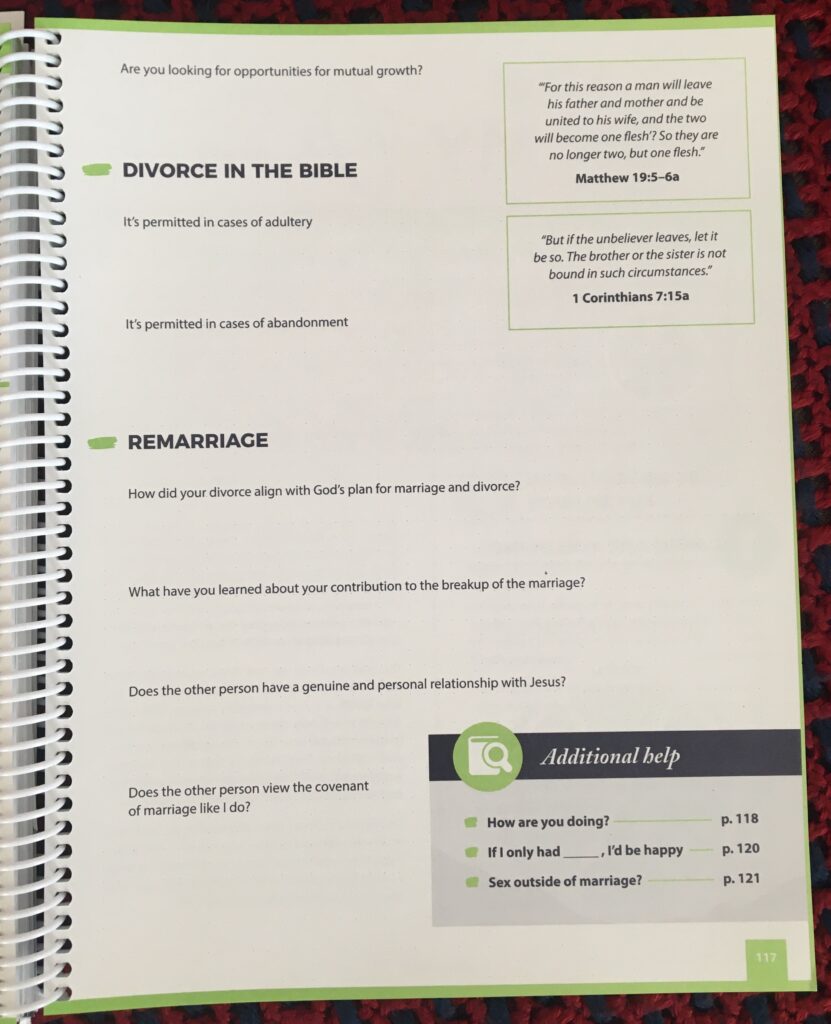
Are you considering a life-saving divorce and need support and clarity? I’d like to invite you to my private Facebook group, “Life-Saving Divorce for Separated or Divorced Christians.” Just click the link and ANSWER the 4 QUESTIONS. This is a group for women and men of faith who have walked this path, or are considering it. Supporters and people helpers are also welcome. I’ve written a book about spiritual abuse and divorce for Christians, The Life-Saving Divorce: Paperback: https://amzn.to/3cF1j25 Or eBook: https://amzn.to/3CCBsnr
Also, sign up for my email list below or HERE
MOST POPULAR BLOG POSTS
Start Here
- What is a Life-Saving Divorce? How Do We Know Half of Divorces are “Life-Saving”? (or watch the video)
- Life-Saving Divorce: Introduction What Is this Book About? (audio and transcript)
- About Me: Why Is a Nice Christian Girl Like Me Promoting Divorce?
- How Can I Get the Book, The Life-Saving Divorce? (Amazon affiliate link.) – FREE study guides for each chapter. – FREE videos for each chapter.
Does God Hate Divorce? God Gave Divorce Due to Hardhearted Abusers & Betrayers
- Myth: Divorce is the Unpardonable Sin and “God Hates Divorce”
- Abuse is Biblical Grounds for Divorce
- Malachi 2:16 Haven’t Our English Bibles Always Said, “God hates divorce”? No.
- “But He Never Hit Me”: Divorce for Neglect, Emotional, and Financial Abuse
Physical and Emotional Abuse & Infidelity
- 130 Examples of Abuse: Emotional, Physical, Financial, Spiritual and Gaslighting
- Pastors Who Accept Physical and Emotional Abuse as Grounds for Divorce
- Severe Emotional Neglect: Toni’s Story of Finding Freedom (video)
- 40 Years of Murderous Rages and How I Got Free! Karen’s story (video)
- How Churches Should Handle Abuse Victims (video with Pastor Neil Schori)
- Help! I’m Married to a Cheater: Should I Stay or Go?
- Married to a Pedophile: How I Got Out – Pam’s Story (video)
- Help! I Am Alone with the Abuser
God Allows Divorce to Protect Victims
- Jesus’ Greatest Divorce Sermon – Luke 13 (or watch the Video)
- Pastors Who Accept Physical and Emotional Abuse as Grounds for Divorce
- Myth: The Person Who Files for Divorce Caused the Divorce
- Haven’t Our English Bibles Always Said, “God hates divorce”? No.
- Jesus Said, “Love My Enemy”-Can I Still Divorce Them?
- But I Thought it Was God’s Will for Me to Marry this Person!
- Is Pointing Out Marriage-Endangering Sin Being Judgmental? (video)
- One Woman’s Story: Adultery, Prayer and the Bible
- Is Marriage an Unconditional Covenant or a Conditional One? (Video)
- Does Divorce Shatter the Image of Christ and the Church as John Piper Suggests?
- Divorce and the Good Samaritan Story
- Myth: Divorce is the Unpardonable Sin and “God Hates Divorce”
- Myth: Your Divorce Will Shatter the Image of Christ and the Church
- Myth: You Must Forgive and Forget Over and Over, Forever
How to Find a Good Supportive Church
- Pastors Who Accept Physical and Emotional Abuse as Grounds for Divorce
- 7 Ways to Know if a Church is Safe for Abused Wives (or Abused Husbands)
- Do My Pastors Have a Say about Me Getting a Divorce?
- Good vs. Bad Pastoral Counselors on the Topic of Marital Abuse: 40 People Tell their Stories
What If My Pastor Says It Would Be Wrong to Get Divorced for Abuse?
- 5 Bible Verses that Say You Should Separate from an Abuser
- 1 Million God-honoring Divorcees Cannot Find a Good Church
- Church Denominations and Divorce Policies Comparison Chart
- Excommunication for Getting Divorced? What to Do!
- Evangelicals Shooting their Own Wounded Divorcees (video) or blog/transcript
- How to Handle Criticism When You Divorce (video-3 parts) Natalie Hoffman, Gina Kaye
- Myth: You Don’t Take God-Ordained Marriage Seriously
- Sermon Ideas for Domestic Violence Awareness Month – October
- Churches That Block Abused Wives (and Husbands) From Divorcing
- Southern Baptists make Evangelicalism Unsafe for Abused Wives & Husbands
- How Churches Should Handle Abuse Victims (video with Pastor Neil Schori)
- List of Every Known Puritan Divorce in Massachusetts between 1639 and 1692.
Divorce Saves Lives: The Surprising (Wonderful!) Truth About Divorce Nobody Told You
- Your Kids Will Likely Be Fine After Divorce (Nearly 8 in 10 Are!)
- 10 Facts Evangelical Pastors MUST Know about Kids and Divorce [VIDEO]
- There Is No Divorce Crisis. We have a Sin Crisis.
- Myth: 95% of Divorces are for Falling Out of Love
Will I Ever Find Love Again? Dating After Divorce: Good News
- Will I Ever Find Love Again?
- Dating after Divorce: An interview with Gina Kaye
- I Fear I’ll Never Find a Healthy Relationship
- Remarriage after Divorce: How Can I Claim to be the Innocent Spouse? I Had My Faults Too!
Finding Happiness and Health After Divorce
- Will the Kids and I Ever Be Happy Again?
- Happiness Either Way: Remarriage or Staying Single
- Divorce May Improve Your Health: Depression, Suicidal Thoughts and Medical Issues
- How My Health Improved Dramatically After Divorce: Karen’s Story (video)
- “I’m Off of All My Depression Medications Now That I’ve Divorced” Schari’s story (video)
- PTSD, EMDR and My Major Health Improvements after Divorce Toni’s story (video)
Thriving After Divorce: These Christians Tell their Stories
- Christians Finding Peace after Divorce: Shirley Fessel, Author (Audio) or (Video)
- 10 Turning Points: Stories of How Others Decided to Stay or to Go
- Married to a Pedophile: How My Kids and I Got Free! (video)
- Finding Joy after a 40-Year Abusive Marriage (video)
- Can I Divorce My Mentally Ill, Destructive Spouse? Yes! Amanda’s Story (video)
- From Bondage to Glorifying God! 5 Survivor Stories (after 20-, 30-, 40-year long abusive marriages)
Self-Doubt, Second-Guessing Ourselves, and Gaslighting
- Am I the One Destroying the Relationship?
- How Can I Call Myself the Innocent Spouse? I Wasn’t Perfect Either (video)
- Is Pointing Out Marriage-Endangering Sin Being Judgmental? (video)
- Myth: He Wouldn’t Cheat or Watch Porn if You Gave Him More Sex
- Myth: You’re Lying: We’d All Know If Your Spouse Was That Bad
- Myth: It Takes “Two to Tango” and “All Marriage Problems are 50/50”
- How to Handle Criticism When You Divorce (video-3 parts) Natalie Hoffman, Gina Kaye
Children and Divorce: Researchers Give Hope
- Is it Best to “Stay for the Kids”? Sometimes, yes. But Not if It’s a Toxic Marriage
- Researchers Know Your Kids Will Likely Be Fine After Life-Saving Divorce
- 5 Studies That Say Your Kids are Likely to Be Okay After Divorce (video)
- Marriage Does Not Guarantee Good Kids: 1 in 10 Kids from Married Two-Parent Homes are Troubled.
- Myth 21: Divorce will Destroy Your Children, So Stay for the Sake of Your Kids
High Conflict Divorce and Parenting
- Research shows: Your Kids Will Likely Be Fine After Divorce: In Fact It’s Best to Divorce to Get Away From Abuse
- 12 Ways to Document and Protect Yourself in a High-Conflict Divorce
- 12 Tips for Talking with Angry, Alienated Kids
- Myth: Divorce will Destroy Your Children, So Stay for the Sake of Your Kids
Recommended Reading List and Free Resources for Christians and Other People of Faith
Common Myths
- Myth: Your Marriage Would Be Great if You Just Submitted More
- Myth: Divorce will Destroy Your Children, So Stay for the Sake of Your Kids
- Myth: Divorce is the Unpardonable Sin and “God Hates Divorce”
- Myth: You Just Didn’t Try Hard Enough
- Myth: You Don’t Take God-Ordained Marriage Seriously
- Myth: Your Divorce Will Shatter the Image of Christ and the Church
- Myth: You Must Forgive and Forget Over and Over, Forever
- Myth: 95% of Divorces are for Falling Out of Love
- 27 Myths about Divorce That Probably Don’t Apply to Committed Christians
FREE
- Download “7 Effective Ways to End the Stigma of Divorce in the Church” (Sign up)
- Download “7 Effective Ways to Deal with Criticism when You Divorce” (Sign up)
- Download “3 Studies that Show Kids Are Most Likely to Turn Out Fine After Divorce” (Sign up at bottom of page)
FOLLOW
- Home Follow me on Facebook • Follow me on Twitter • Buy the book.
- 10 Key Highlights from the The Life-Saving Divorcebook: 10-minute video overview OR 10 Key highlights blog post
- Request to Join the Life-Saving Divorce Private Facebook Group (Don’t forget to answer the 4 questions)
- Subscribe (FREE) to my You Tube Channel
- About Me Contact
- Gretchen’s Life-Saving Divorce Interviews in the Media
GET THE BOOK! The Life-Saving Divorce is about divorces for very serious reasons: a pattern of sexual immorality, physical abuse, chronic emotional abuse, life-altering addictions, abandonment, or severe neglect. This book will give you hope for your future, and optimism about your children. As an Amazon Associate I earn from qualifying purchases.

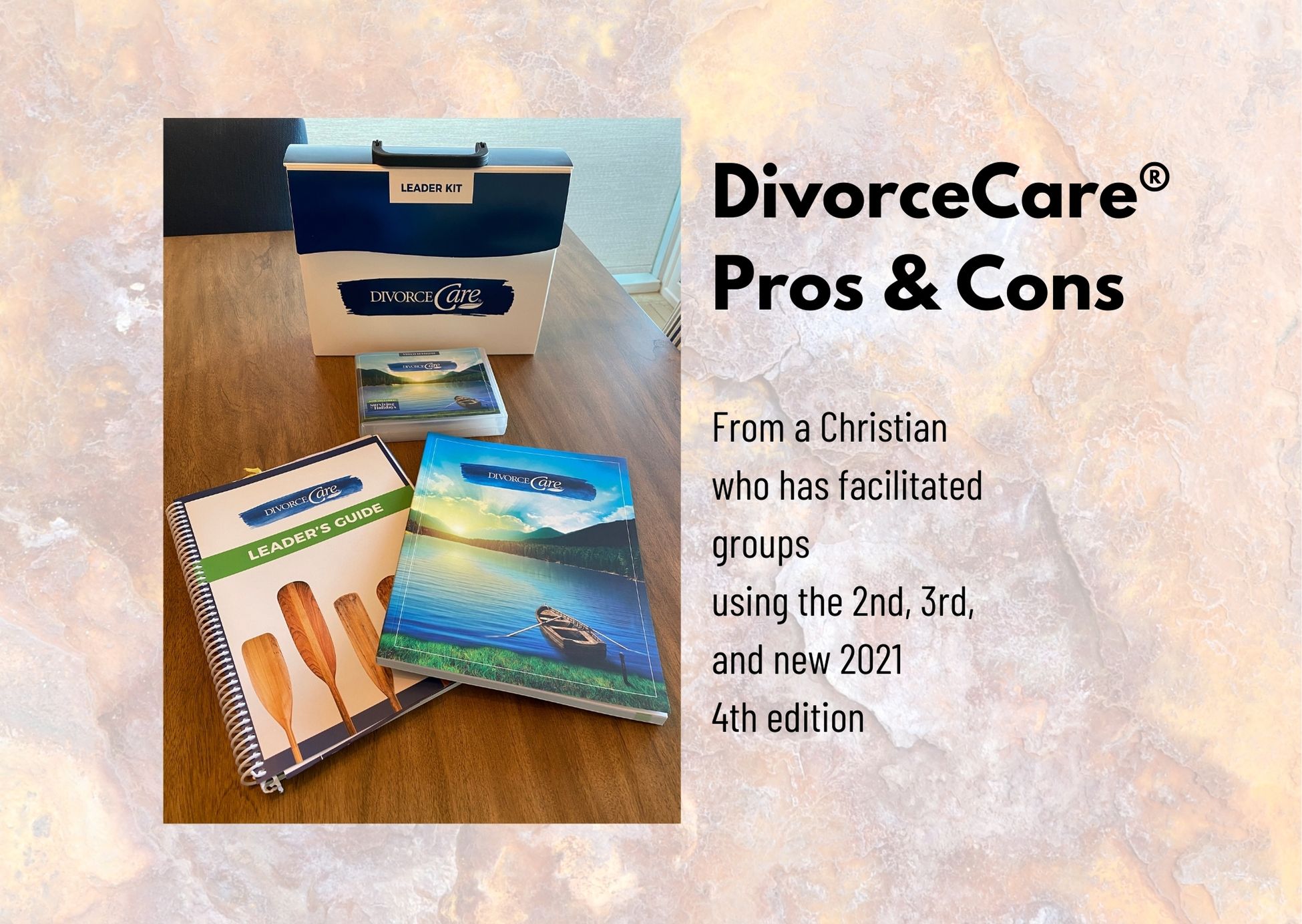
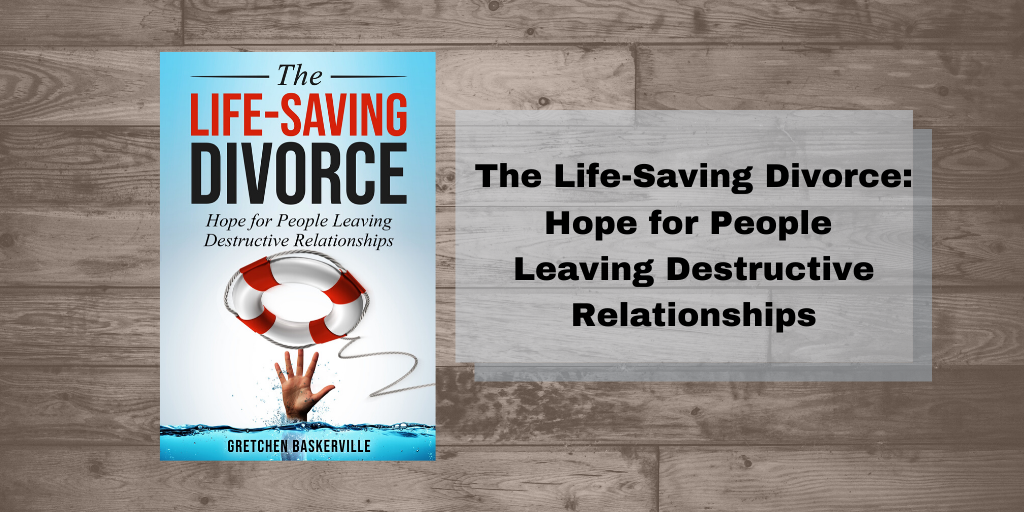
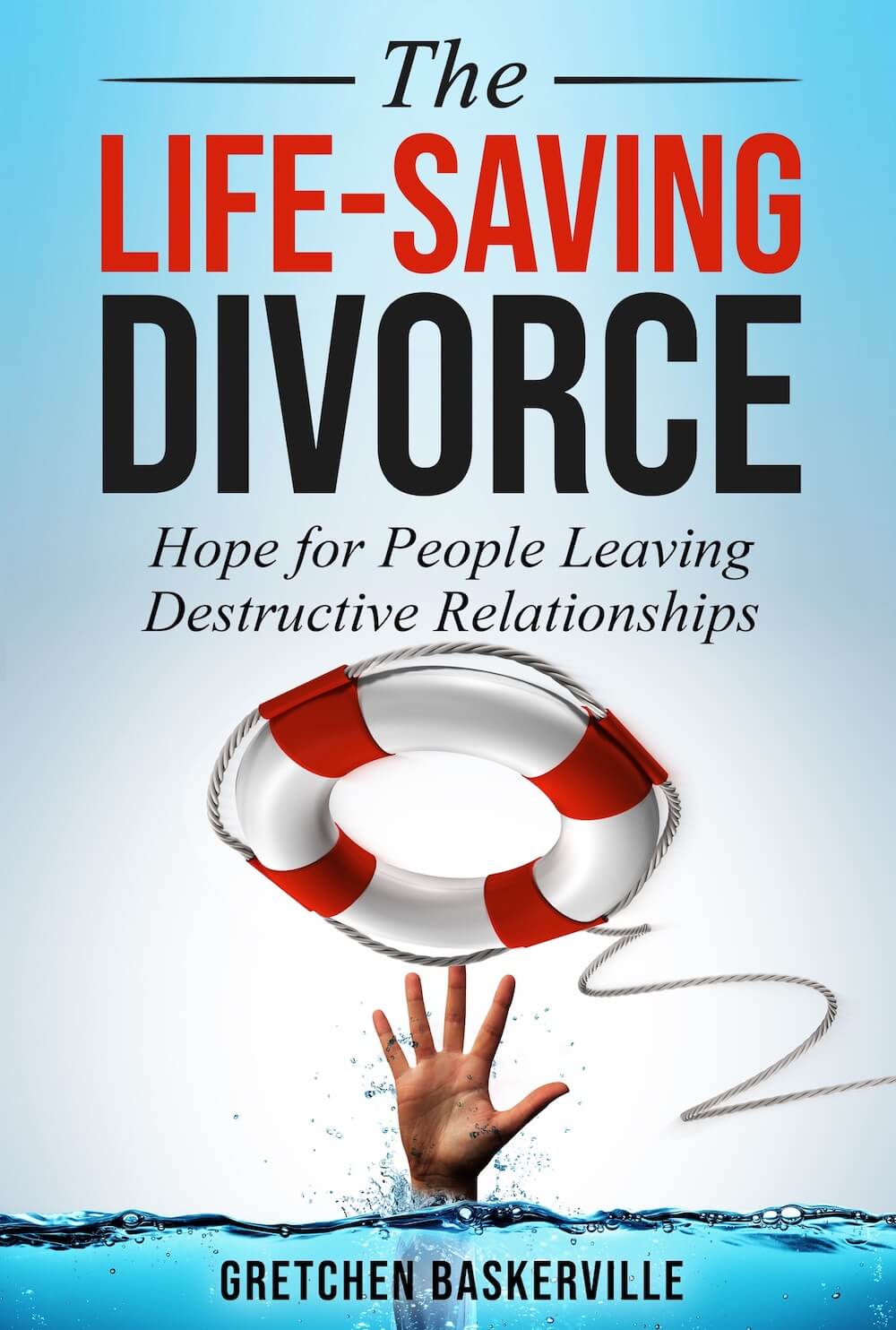
 :
:
 Buy PDF
Buy PDF